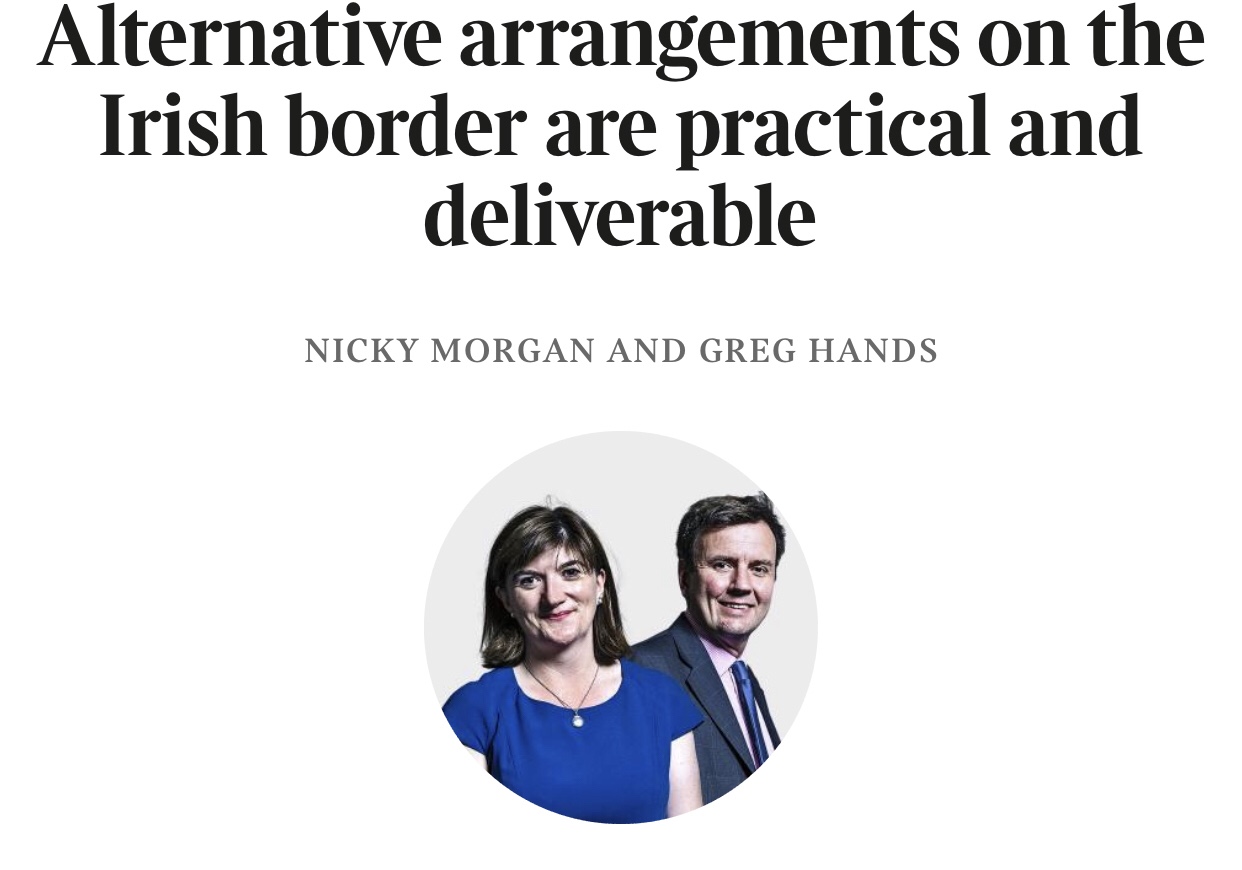Alternative Arrangements on the Irish border are practical and deliverable
By Rt Hon Nicky Morgan, MP and Rt Hon Greg Hands, MP, Co-Chairs of the Prosperity UK Alternative Arrangement Commission

Finding a solution to the Irish border issue, which protects and upholds the Belfast / Good Friday Agreement, avoids a “hard border” on the island of Ireland, respects legitimate Irish and EU concerns, but which avoids the UK ever entering the so-called Backstop, is critical to clearing the Brexit impasse. Today, we believe finding such a solution has taken a substantial step forward.
As co-chairs of the Prosperity UK Alternative Arrangements Commission, an independent cross-party group set up to find practical solutions to, and opportunities from, Brexit, we are delighted to have published today our interim report for practical, workable Alternative Arrangements for the Irish border.
The report, produced by a panel of 23 technical experts, comprising border and customs experts, practitioners and lawyers with detailed knowledge of international trade, business and community relationships has engaged with stakeholders across the island of Ireland.
Its aim has been to secure solutions that protect and uphold the Belfast / Good Friday Agreement and that deliver solutions compatible with any of the Brexit outcomes, including working within the boundaries of the Withdrawal Agreement and related instruments.
Our Commission’s objective, from the outset, was to develop detailed proposals to avoid physical infrastructure at the border via, “consideration of comprehensive customs cooperation arrangements, facilitative arrangements and technologies,” as described in The Strasbourg declaration, March 2019.
For example, the report suggests multi-tiered trusted trader schemes, so customs processes take place at the point of departure and arrival, special economic zones in border areas, and exemptions for the very smallest companies below the VAT threshold.
As the report demonstrates, there already exist processes and technical solutions to many of the issues. The suggestion by some critics that Alternative Arrangements are some sort of “high-tech unicorn” is therefore ludicrous. While we should always be open to innovation, these solutions can be implemented within three years, with some measures introduced much sooner, subject to political agreement, ensuring the backstop is not triggered, or if it is, there is a clear route map out of it.
As we continue to seek a way out of the Brexit deadlock, it is worth remembering that there was one Brexit solution that did pass in the House of Commons – namely the Brady Amendment – that called for Alternative Arrangements without being specific. The work of the Commission has taken that amendment and turned it into practical, workable solutions, which will enable the UK to pursue its own independent trade and regulatory policy after Brexit, a key benefit of the Brexit process.
We believe this report has established viable and practical solutions, which can be turned into a draft Alternative Arrangements Protocol and can be reflected in the Withdrawal Agreement. Failing that, the work and the draft protocol could be utilised for any other Brexit outcome.
We would therefore encourage our colleagues in all parties to read these interim recommendations, to share their feedback prior to publication of the final report – to include the text of the Draft Protocol – at the end of July, in order that we can reach a Parliamentary consensus, renew discussions with the EU and finally deliver Brexit.
You must be logged in to post a comment.